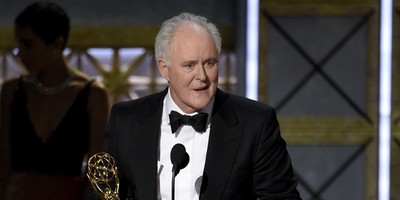Before getting to the heart of the case, the justices first wanted to deal with what seemed to be a side issue: Was the penalty imposed by the individual mandate in Obamacare a tax? If it was, the case would run afoul of a 19th-century law known as the Anti-Injunction Act, which said a tax cannot be challenged in court until someone has actually been forced to pay it. Since the Obamacare mandate wouldn't go into effect until 2014, that would mean there could be no court case until then.
No one had challenged Obamacare on that basis; the challengers wanted the case to go forward now. The White House, having argued strenuously during the Obamacare debate that the penalty wasn't a tax, wanted to go ahead as well. So the court, on its own, tapped a Washington attorney to make the argument that the penalty was a tax and therefore the case should not go ahead.
"The Anti-Injunction Act imposes a 'pay first, litigate later' rule that is central to federal tax assessment and collection," said the lawyer, Robert A. Long, on that first day of oral arguments. "The act applies to essentially every tax penalty in the Internal Revenue Code. There is no reason to think that Congress made a special exception for the penalty imposed by (Obamacare)."
After Long made his case, it fell to the administration's lawyer, Solicitor General Donald Verrilli, to argue that no, the mandate was not a tax, and therefore the case was not subject to the Anti-Injunction Act.
Recommended
At the same time, everyone knew that the next day, when Verrilli planned to argue that the mandate was justified under the Constitution's Commerce Clause, he had as a backup the argument that it was also justified by Congress' power to levy taxes -- in other words, that it was a tax.
Justice Samuel Alito saw the conflict right away.
"General Verrilli, today you are arguing that the penalty is not a tax," Alito said. "Tomorrow you are going to be back, and you will be arguing that the penalty is a tax. Has the court ever held that something that is a tax for the purposes of the taxing power under the Constitution is not a tax under the Anti-Injunction Act?"
"No," answered Verrilli.
At the time, some observers found the whole thing a little boring; the real action would come the next day, when the court got to the question of whether the Commerce Clause could be stretched to include the individual mandate.
But a lot of those same observers were shocked on June 28, when Chief Justice John Roberts, rejecting the Commerce Clause argument, agreed with Verrilli that the mandate simultaneously was and was not a tax, and that therefore Obamacare would stand. Roberts joined the court's four liberal justices, Ruth Bader Ginsburg, Stephen Breyer, Sonia Sotomayor and Elena Kagan, who seemed prepared to uphold Obamacare under any circumstances.
Roberts' sleight of hand drove his conservative colleagues nuts. "The government and those who support its position on this point make the remarkable argument that (the mandate) is not a tax for purposes of the Anti-Injunction Act, but is a tax for constitutional purposes," wrote dissenters Alito, Antonin Scalia, Anthony Kennedy and Clarence Thomas. "That carries verbal wizardry too far, deep into the forbidden land of the sophists."
After the ruling, Obamacare opponents pointed out the thousands of times the president and Democratic lawmakers had contended that the mandate penalty was not -- repeat, not -- a tax. But it no longer mattered. "Call it what you will," said former House Speaker Nancy Pelosi.
Outside the court, the conservatives who thought they knew Roberts seemed baffled. "For whatever reason, and you'll have to ask Justice Roberts, he rewrote the statute," said Mike Carvin, who argued against Obamacare in the case. "I'm glad he rewrote the statute rather than the Constitution, but none of it can pass rational scrutiny."
Maybe rational scrutiny isn't what is called for. If a person wants to do something badly enough, he'll come up with a reason for doing it. John Roberts, apparently, wanted to uphold Obamacare, even if it meant venturing deep into the forbidden land of the sophists.

























Join the conversation as a VIP Member